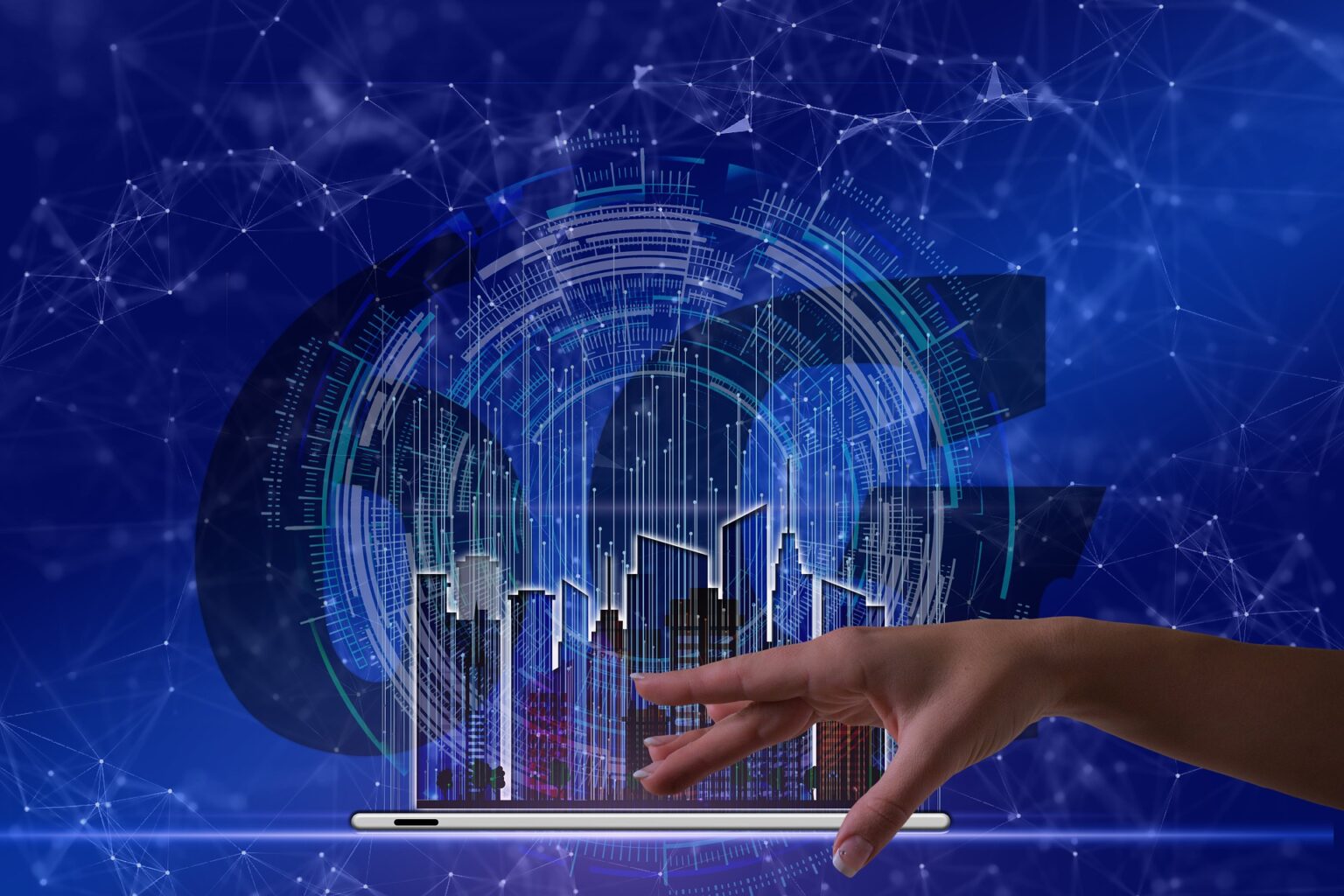The advent of 5G technology marks a revolutionary step in wireless communication. Promising ultra-fast speeds, extremely low latency, and enhanced connectivity, 5G is poised to transform various industries, enabling innovations and creating new opportunities that were previously unimaginable. This article delves into how 5G will change the world, its applications across different sectors, and its profound impact on industries with real-world use cases and examples.
Understanding 5G Technology
5G, the fifth generation of wireless networks, is an upgrade from 4G LTE, offering significantly higher data rates, reduced latency, and the ability to connect a multitude of devices simultaneously. Here are its key characteristics:
- Speed: 5G can provide speeds up to 10 Gbps, making it 100 times faster than 4G.
- Low Latency: Latency in 5G is reduced to under 1 millisecond, making real-time communication seamless.
- Massive Connectivity: 5G can support up to 1 million devices per square kilometer, enabling a connected ecosystem.
- Network Slicing: This allows operators to create virtual networks tailored to specific needs, ensuring dedicated bandwidth for different services.
With these capabilities, 5G is expected to have a transformative impact on numerous industries.
1. Enhanced Mobile Broadband (eMBB)
Impact and Applications:
Enhanced Mobile Broadband is the most immediate and noticeable impact of 5G technology. It improves the user experience with ultra-fast internet speeds, making it possible to download large files, stream high-quality videos, and conduct real-time video conferencing without lag.
Real-World Use Case:
- Remote Work and Education: During the COVID-19 pandemic, remote work and online education became the norm. With 5G, these activities can be further enhanced. For example, companies like Zoom and Microsoft Teams can offer better video quality with less buffering, allowing for a seamless remote collaboration experience.
- Entertainment Industry: Streaming services like Netflix, Disney+, and YouTube will see reduced buffering and increased quality of content delivery, even in 4K or 8K resolution.
2. Internet of Things (IoT) Expansion
Impact and Applications:
5G will supercharge IoT by enabling the connection of billions of devices, from smart home gadgets to industrial sensors. This will lead to smarter cities, efficient industries, and enhanced consumer experiences.
Real-World Use Case:
- Smart Cities: In Barcelona, smart parking solutions are already in use, where sensors detect free parking spaces and send this data to a centralized system, helping drivers find parking faster. With 5G, this system can be expanded to include real-time traffic management, waste collection, and even environmental monitoring.
- Smart Homes: Devices like Amazon’s Alexa and Google’s Nest will benefit from faster and more reliable connections, enabling real-time responses and control over various home functions, from lighting to security systems.
3. Autonomous Vehicles and Transportation
Impact and Applications:
One of the most exciting applications of 5G is in autonomous vehicles. 5G’s low latency is crucial for real-time decision-making, as self-driving cars require split-second responses to changes in their environment.
Real-World Use Case:
- Tesla’s Autopilot and Waymo: Both companies are pushing the boundaries of autonomous driving. With 5G, these vehicles can communicate with each other (Vehicle-to-Vehicle, V2V) and with traffic infrastructure (Vehicle-to-Infrastructure, V2I), enabling better coordination, reduced traffic congestion, and enhanced safety.
4. Healthcare: Telemedicine and Remote Surgery
Impact and Applications:
The healthcare industry is set to undergo a significant transformation with 5G. It will enable high-quality telemedicine, real-time health monitoring, and even remote surgeries.
Real-World Use Case:
- Remote Surgery: In 2019, China conducted its first remote surgery using a 5G network. A surgeon in Beijing controlled a robot in Hainan to perform surgery on a patient. This was made possible by the low latency and high reliability of 5G, paving the way for advanced healthcare solutions where distance is no longer a barrier.
- Telemedicine: With platforms like Teladoc and Doctor On Demand, 5G will allow for clearer video calls, immediate data sharing (e.g., medical records, imaging), and real-time diagnostics.
5. Manufacturing: Smart Factories and Industry 4.0
Impact and Applications:
5G is a key enabler of Industry 4.0, the fourth industrial revolution, characterized by smart factories where machines and systems are interconnected.
Real-World Use Case:
- Predictive Maintenance: Companies like Siemens are leveraging 5G to monitor machinery in real-time. Sensors connected via 5G networks can detect anomalies and predict failures before they happen, reducing downtime and maintenance costs.
- Robotics and Automation: In manufacturing plants like BMW and Ford, 5G-enabled robots are used for assembly, painting, and quality checks, significantly improving efficiency and precision.
6. Agriculture: Precision Farming
Impact and Applications:
5G technology will revolutionize agriculture through precision farming, enabling farmers to monitor crops, automate machinery, and make data-driven decisions to increase yield.
Real-World Use Case:
- Smart Irrigation Systems: Companies like John Deere are developing 5G-enabled smart tractors and irrigation systems. These can analyze soil moisture in real-time and adjust water levels, significantly conserving water while maximizing crop yield.
- Drones for Monitoring: Drones equipped with 5G can provide real-time images and data of large agricultural fields, helping farmers detect diseases early, monitor crop health, and optimize resources.
7. Retail: Enhanced Shopping Experience and Supply Chain Management
Impact and Applications:
5G will transform the retail experience, offering personalized shopping, augmented reality (AR) experiences, and streamlined supply chains.
Real-World Use Case:
- AR Shopping Experiences: Brands like IKEA and Sephora use augmented reality to allow customers to visualize products in their homes before purchasing. With 5G, this experience will be more seamless and immersive, allowing for real-time interactions.
- Smart Inventory Management: Retail giants like Walmart are implementing 5G-powered robots to check stock levels in real-time and ensure efficient inventory management.
8. Entertainment and Media: Immersive Experiences
Impact and Applications:
5G will enable new forms of entertainment, such as cloud gaming, virtual reality (VR), and augmented reality (AR), providing an immersive experience for users.
Real-World Use Case:
- Cloud Gaming: Companies like NVIDIA GeForce Now and Google Stadia are utilizing 5G for cloud gaming, where games are streamed directly to devices without requiring high-end hardware, enabling high-quality gaming on mobile devices.
- Live Events and VR: With 5G, attending live events or concerts through VR headsets will become possible, providing an immersive experience as if the user were physically present.
9. Finance: Real-Time Transactions and Enhanced Security
Impact and Applications:
5G will enhance the financial industry by enabling faster transactions, improved customer experiences, and better security through real-time monitoring and detection.
Real-World Use Case:
- Contactless Payments: Services like Apple Pay and Google Wallet will benefit from 5G’s speed, enabling quicker and more secure transactions.
- Fraud Detection: Financial institutions like JPMorgan Chase are investing in 5G to power real-time fraud detection systems, ensuring immediate responses to potential threats.
Conclusion
The implementation of 5G is not just an upgrade in network technology; it is a catalyst for change across various industries. From healthcare and manufacturing to transportation and entertainment, 5G is set to unlock new possibilities and drive unprecedented innovation. As more devices and systems get connected, 5G will pave the way for a more connected, efficient, and smarter world.
The shift to 5G also presents challenges, such as the need for significant infrastructure investments and addressing security concerns. However, its potential benefits far outweigh these challenges, promising to redefine how we live, work, and interact with technology.
In conclusion, as industries adapt to harness the power of 5G, we can expect a world where connectivity is seamless, data flows instantaneously, and possibilities are boundless. The future, powered by 5G, is here and is set to transform the global landscape in profound ways.


